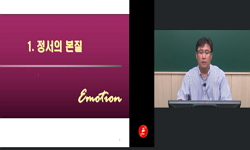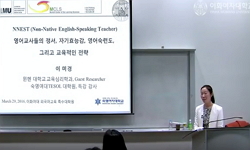Objectives : Patients with schizophrenia often have a concrete thinking or an impairment in abstract thinking, but there has been a limitation in quantitatively measuring this cognitive function. The aim of the current study was to investigate a defic...
http://chineseinput.net/에서 pinyin(병음)방식으로 중국어를 변환할 수 있습니다.
변환된 중국어를 복사하여 사용하시면 됩니다.
- 中文 을 입력하시려면 zhongwen을 입력하시고 space를누르시면됩니다.
- 北京 을 입력하시려면 beijing을 입력하시고 space를 누르시면 됩니다.

주제찾기 수행을 통해 평가한 조현병 환자에서의 추상적 사고 능력의 저하 = Deficits in Abstract Thinking Assessed by Theme Identification in Patients with Schizophrenia
한글로보기https://www.riss.kr/link?id=A104611208
- 저자
- 발행기관
- 학술지명
- 권호사항
-
발행연도
2013
-
작성언어
Korean
-
주제어
Schizophrenia ; Abstract thinking ; Emotion ; Theme identification ; Anhedonia ; 조현병 ; 추상적 사고 ; 정서 ; 주제찾기 ; 무쾌감증
-
등재정보
KCI등재후보
-
자료형태
학술저널
-
수록면
25-31(7쪽)
-
KCI 피인용횟수
0
- 제공처
-
0
상세조회 -
0
다운로드
부가정보
다국어 초록 (Multilingual Abstract)
Objectives : Patients with schizophrenia often have a concrete thinking or an impairment in abstract thinking, but there has been a limitation in quantitatively measuring this cognitive function. The aim of the current study was to investigate a deficit in abstract thinking in patients with schizophrenia using the theme identification task.
Methods : Twenty subjects with schizophrenia and 20 healthy volunteers participated in the behavioral study for theme identification. The visual stimuli were composed of a series of pictures, which contained positive or negative emotional situations. Three words, indicating a main theme of the picture, a theme-related item and a theme-unrelated item, respectively, were presented in the bottom of the pictures, and participants had to select a theme.
Results : The patient group selected theme words at significantly lower rate in both emotional conditions than the control group (positive, p=0.002 ; negative, p=0.001). Especially, in the negative condition, the patient group more selected theme-unrelated items than the control group (p=0.001). The rates of theme identification were inversely correlated with scores of the Social Anhedonia Scale (positive, r=-0.440, p=0.007 ; negative, r=-0.366, p=0.028).
Conclusion : Patients with schizophrenia exhibited an impairment in abstract thinking, and it was remarkable in the negative condition. The ability to think abstractly was associated with the severity of social anhedonia. The impairment of abstract thinking may become one of the reasons for poor social functioning in socially anhedonic patients.
국문 초록 (Abstract)
본 연구는 상기 제시된 제한점에도 불구하고 몇 가지 중요한 사실을 제시하고 있다. 첫째, 조현병 환자들의 추상적 사고 능력은 일상적인 상황을 나타내는 사진에서의 주제찾기 수행을 통해...
본 연구는 상기 제시된 제한점에도 불구하고 몇 가지 중요한 사실을 제시하고 있다. 첫째, 조현병 환자들의 추상적 사고 능력은 일상적인 상황을 나타내는 사진에서의 주제찾기 수행을 통해 평가하였을 때에도 정상인에 비해서 저하되어 있다. 둘째, 조현병 환자에서의 추상적 사고 능력의 저하는 다른 인지적 과제 수행 시와 비슷하게 부정적 정서가 동반되었을 때 두드러진다. 셋째, 조현병의 핵심 병리 중 하나인 사회적 무쾌감증이 심할수록 추상적 사고 능력의 저하가 두드러진다. 이러한 연구 결과는 결론적으로, 추상적 사고 능력에 대한 올바른 평가 및 이해를 위해서는 동반된 정서에 대한 고려가 필요하다는 것을 의미하고, 사회적 무쾌감 증상이 있는 환자의 저하된 사회적 기능의 원인 중 하나로 추상적 사고 능력을 고려해 볼 수 있다는 사실을 제시한다. 물론, 본 결과는 앞서 제시된 여러 가지 제한점을 극복하고, 다른 연구들을 통하여 추후 검증되어야 할 것이다.
참고문헌 (Reference)
1 Wechsler D, "Wechsler Adult Intelligence Scale Manual"
2 Gorham, "Use of the proverbs test for differentiating schizophrenics from normals" 20 : 435-440, 1956
3 Peuskens J, "Treatment of cognitive dysfunction in schizophrenia" 27 : S25-S37, 2005
4 Flavell JH, "Thinking and social behavior in schizophrenia" 52 : 208-211, 1956
5 Kay SR, "The positive and negative syndrome scale (PANSS) for schizophrenia" 13 : 261-276, 1987
6 Nahor, "The influence of instructional set on schizophrenic vs. organic concreteness" 19 : 89-95, 1976
7 O’Reilly P, "The Gorham Proverbs Test" 21 : 382-385, 1960
8 Sadock BJ, "Synopsis of Psychiatry; Tenth edition" 273-,
9 Corrigan, "Social cue perception and intelligence in schizophrenia" 13 : 73-79, 1994
10 Kwapil T, "Social anhedonia as a predictor of the development of schizophrenia-spectrum disorders" 107 : 558-565, 1998
1 Wechsler D, "Wechsler Adult Intelligence Scale Manual"
2 Gorham, "Use of the proverbs test for differentiating schizophrenics from normals" 20 : 435-440, 1956
3 Peuskens J, "Treatment of cognitive dysfunction in schizophrenia" 27 : S25-S37, 2005
4 Flavell JH, "Thinking and social behavior in schizophrenia" 52 : 208-211, 1956
5 Kay SR, "The positive and negative syndrome scale (PANSS) for schizophrenia" 13 : 261-276, 1987
6 Nahor, "The influence of instructional set on schizophrenic vs. organic concreteness" 19 : 89-95, 1976
7 O’Reilly P, "The Gorham Proverbs Test" 21 : 382-385, 1960
8 Sadock BJ, "Synopsis of Psychiatry; Tenth edition" 273-,
9 Corrigan, "Social cue perception and intelligence in schizophrenia" 13 : 73-79, 1994
10 Kwapil T, "Social anhedonia as a predictor of the development of schizophrenia-spectrum disorders" 107 : 558-565, 1998
11 Kuperberg G, "Schizophrenia and cognitive function" 10 : 205-210, 2000
12 Chapman LJ, "Scales for physical and social anhedonia" 85 : 374-382, 1976
13 Bruce N, "Relationship of scales of schizophrenia proneness and premorbid adjustment to thinking deficits in schizophrenia" 39 : 311-314, 1983
14 Lysaker PH, "Relationship of impaired processing speed and flexibility of abstract thought to improvements in work performance over time in schizophrenia" 75 : 211-218, 2005
15 Vercarmmen A, "Reduced neural activity of the prefrontal cognitive control circuitry during response inhibition to negative words in people with schizophrenia" 37 : 379-388, 2012
16 Schmittmann VD, "Multiple learning modes in the development of performance on a rule-based category- learning task" 44 : 2079-2091, 2006
17 van’t Wout M, "Fearful faces in schizophrenia: the relationship between patient characteristics and facial affect recognition" 195 : 758-764, 2007
18 Christian GK, "Facial emotion recognition in schizophrenia: intensity effects and error pattern" 160 : 1768-1774, 2003
19 Kohler CG, "Facial emotion recognition in schizophrenia: intensity effects and error pattern" 160 : 1768-1774, 2003
20 Manoabc QR, "Emotion-cognition interactions in schizophrenia: Implicit and explicit effects of facial expression" 48 : 997-1002, 2010
21 Citron FMM, "Effects of valence and arousal on written word recognition: Time course and ERP correlates" 15 : 90-95, 2013
22 Albert, "Differences in abstraction ability with age" 5 : 94-100, 1990
23 Kim CK, "Comparisons of Symptoms and Neurocogntive functions in Schizophrenic Patients Divided by Social Functioning" 41 : 1020-1029, 2002
24 Kiang M, "Cognitive, neurophysiological, and functional correlates of proverb interpretation abnormalities in schizophrenia" 13 : 653-663, 2007
25 Sharma T, "Cognitive function in schizophrenia Deficits, functional consequences, and future treatment" 26 : 25-40, 2003
26 Kaland N, "Brief Report: Cognitive Flexibility and Focused Attention in Children and Adolescents with Asperger Syndrome or High-Functioning Autism as Measured on the Computerized Version of the Wisconsin Card Sorting Test" 38 : 1161-1165, 2008
27 Quintana J, "Brain dysfunctions during facial discrimination in schizophrenia: Selective association to affect decoding" 191 : 44-50, 2011
28 Kim IJ, "Assessment of concrete and abstract thinking of child-psychiatric children with the draw-a-person test and kedi-wisc similarity test" 10 : 186-194, 1999
29 Blanchard JJ, "Anhedonia, Positive and Negative Affect, and Social Functioning in Schizophrenia" 24 : 413-424, 1998
30 Harrow M, "Abstract and concrete thinking in schizophrenia during the prechronic phases" 31 : 27-33, 1974
동일학술지(권/호) 다른 논문
-
한국인 조현병 환자에서의 지연성 운동이상증과 TNF (Tumor Necrosis Factor)-α 유전자 다형성과의 연관성
- 대한조현병학회
- 소수정
- 2013
- KCI등재후보
-
- 대한조현병학회
- 정희정
- 2013
- KCI등재후보
-
지역사회 기반의 조기정신증 발견, 평가 및 배치 시스템 분석
- 대한조현병학회
- 이명수
- 2013
- KCI등재후보
-
지역사회에 거주하는 조현병 환자와 보호자들의 장기지속형 주사제 항정신병약물에 대한 선호도 조사
- 대한조현병학회
- 이융
- 2013
- KCI등재후보
분석정보
인용정보 인용지수 설명보기
학술지 이력
| 연월일 | 이력구분 | 이력상세 | 등재구분 |
|---|---|---|---|
| 2023 | 평가예정 | 재인증평가 신청대상 (재인증) | |
| 2020-01-01 | 평가 | 등재학술지 선정 (재인증) |  |
| 2018-01-01 | 평가 | 등재후보학술지 선정 (신규평가) |  |
| 2017-12-01 | 평가 | 등재후보 탈락 (계속평가) | |
| 2016-01-01 | 평가 | 등재후보학술지 유지 (계속평가) |  |
| 2015-01-01 | 평가 | 등재후보학술지 유지 (계속평가) |  |
| 2013-01-01 | 평가 | 등재후보 1차 FAIL (등재후보1차) |  |
| 2012-02-02 | 학회명변경 | 한글명 : 대한정신분열병학회 -> 대한조현병학회 |  |
| 2011-01-01 | 평가 | 등재후보학술지 선정 (신규평가) |  |
학술지 인용정보
| 기준연도 | WOS-KCI 통합IF(2년) | KCIF(2년) | KCIF(3년) |
|---|---|---|---|
| 2016 | 0.13 | 0.13 | 0.09 |
| KCIF(4년) | KCIF(5년) | 중심성지수(3년) | 즉시성지수 |
| 0.1 | 0 | 0 | 0 |




 KCI
KCI






